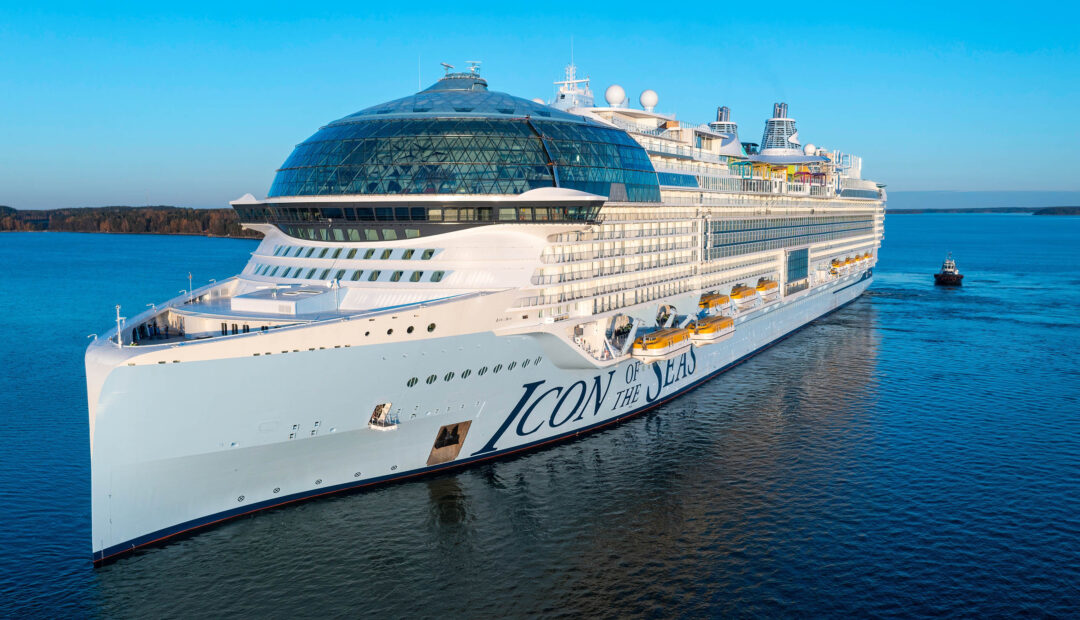The world’s largest cruise ship, Icon of the Seas, set sail recently on its maiden commercial voyage from Miami for a seven-day island-hopping trip, but the mere existence of such a vessel is causing waves for the environmentally-conscious.
According to reports from CNBC, the Royal Caribbean ship, Icon of the Seas, cost $2 billion to build, can host 7,600 passengers, weighs 250,800 metric tons, and measures nearly 1,200 feet from bow to stern (four football fields in length). In January, Royal Caribbean Group CEO Jason Liberty called the ship the “biggest, baddest ship on the planet.”
Those who travel on the Icon of the Seas can enjoy 20 decks, eight “neighborhoods,” seven swimming pools, waterslides, and plenty of entertainment and culinary variety throughout their journey.
Though many onlookers chanted and cheered as the ship set sail, others have raised concerns about the environmental impact of such a gargantuan vehicle, along with the broader environmental effects of cruise travel.
According to Reuters, a study published in Marine Pollution Bulletin found that “a large cruise ship can have a carbon footprint greater than 12,000 cars, while passengers on an Antarctic cruise can produce as much CO2 emissions on a seven-day voyage as the average European in an entire year.”
The Icon of the Seas uses liquified natural gas, which according to CNBC, “burns more cleanly than other conventional marine fuels but contains high levels of methane.”
Methane traps a lot of heat in the atmosphere, being 80 times more potent than carbon dioxide. Just last week, the International Council on Clean Transportation released a report indicating methane emissions from LNG-fueled ships (like the Icon of the Seas) were higher than current regulations assumed, according to CNBC.
In April of 2022, the Cruise Lines International Association (CLIA), the world’s largest cruise industry trade association, announced a series of sustainability commitments, one of which was to achieve net-zero carbon cruising by 2050. CLIA also vowed to join Global Maritime Forum’s Call to Action for Shipping Decarbonization which would make zero-emission vessels and fuels the default choice by 2030. Whether or not the world’s largest cruise lines will commit to more sustainable solutions remains to be seen.


